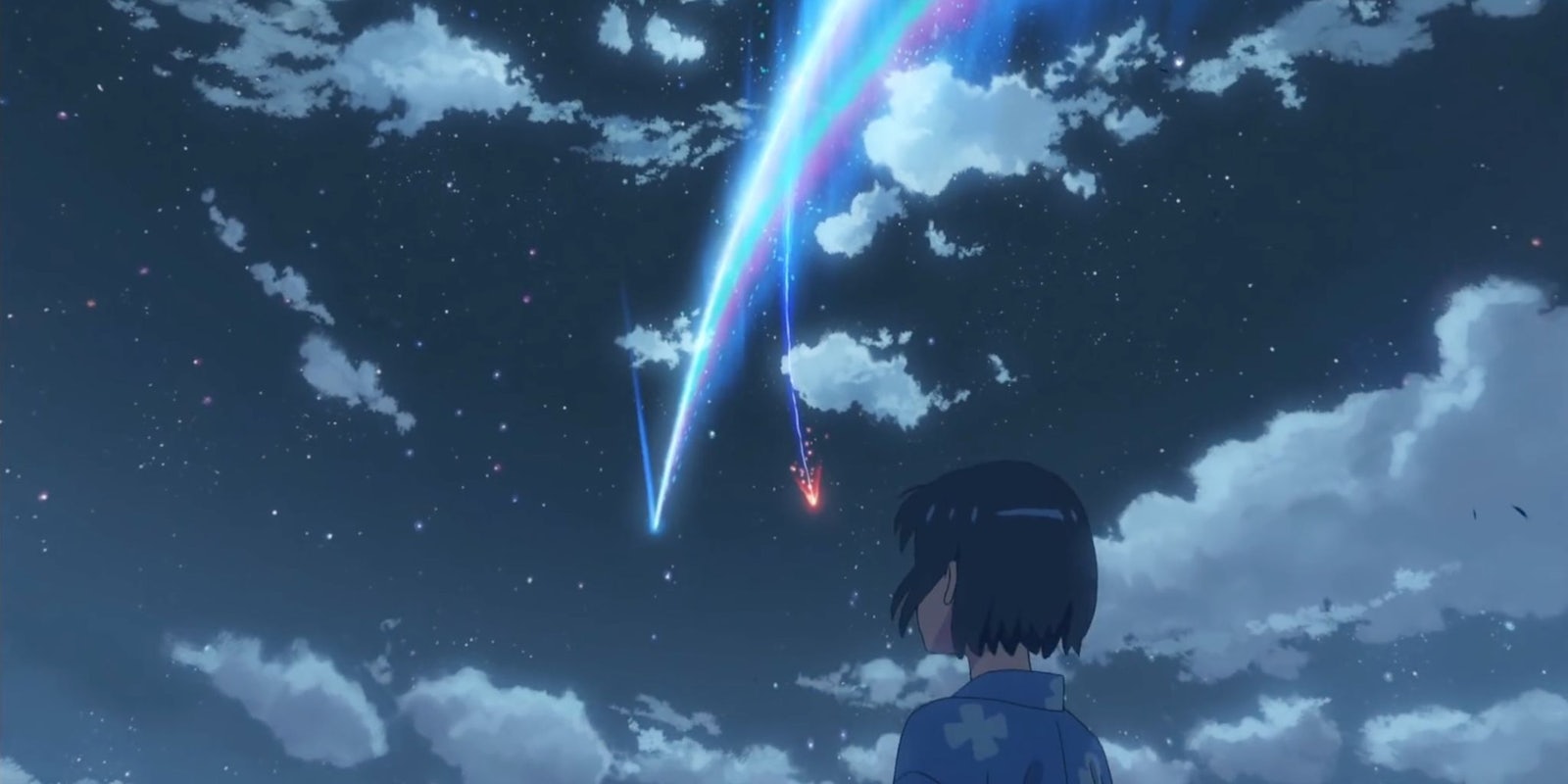Director Makoto Shinkai is known for his tireless explorations into the vulnerabilities of the human condition. That may be why his newest film, Your Name, has pulled in 6 billion yen (roughly $58.8 million U.S.) after its Japanese release Aug. 26.
The film follows the lives of Mitsuha, a female high school student living in a rural town she wishes to escape, and Taki, a male high school student in Tokyo. When they experience dreams of being the other (but have never met), they are driven to search for the answer to what their unconscious minds are summoning into reality.
Your Name may sound like a wild premise, but it’s what fans have come to expect of Shinkai. He’s been called “the new Miyazaki” by some critics, a description that Shinkai himself calls an overestimation. Shinkai’s vision is every bit as distinct as genre pioneer Hayao Miyazaki’s, but with a different sort of focus. Miyazaki’s Studio Ghibli is known for films that appeal to the children in all of us, while Shinkai’s speak to the adult trying to make sense of the gorgeous world passing us by.
Your Name has been licensed by Funimation for U.S. distribution and should be available digitally in the near future. Here’s what you need to know about Shinkai’s impressive career in the meantime.
Voices of a Different Star
Shinkai’s first short film in 1999, She and Her Cat, explored life from the perspective of a cat living with a single woman. The hints of what was to come fully blossomed in Voices of a Different Star, Shinkai’s first full-length feature. Premiering in 2002, it’s the story of two friends trying to stay in touch while separated by space and war, and it cuts deep to the core of loneliness. Shinkai made it clear that this was a topic he was deeply interested in gazing into.
The Place Promised in Our Early Days
After creating Voices of A Distant Star by himself using his Power Mac G4, people started to take notice of Shinkai’s distinctive style and speak up about his work online. He quickly amassed a following on Tumblr of those who loved his thoughtful characters, and those same fans were thrilled when he released his second full-length film, The Place Promised in Our Early Days, with the help of CoMix Wave, Inc.
A story of a love triangle that spans a lifetime set against the backdrop of Japan’s occupation by the United States and the Soviet Union, The Place Promised in Our Early Days shows us a piece of history through the eyes of three young people in love. Alternating between joyous and bittersweet moments, Shinkai’s favorite themes starting to become clear here: how people change over the course of a lifetime, when love doesn’t turn out perfectly, and the struggle for connection.
5 Centimeters Per Second
Shinkai carried those themes forward in his third film, 5 Centimeters Per Second, a tale of childhood friends who fall in love but are separated by untimely circumstances.
https://www.youtube.com/watch?v=iVbnt4vQE6w
By the time 5 Centimeters Per Second was released in 2007, Shinkai wasn’t just telling stories of lost love and longing but making a commentary on what they signified. In an interview with Anime Diet in 2013, Shinkai said that he preferred to tell stories about heartbreak because “you learn a lot more from stories about getting rejected than stories about becoming happy.”
Children Who Chase Lost Voices and The Garden of Words
Children Who Chase Lost Voices (2011) and The Garden of Words (2013) exhibit Shinkai branching out into greater expanses with the former, while returning to the themes that he loves best with the latter. As Shinkai made it clear when speaking about The Garden of Words during an interview on the film’s Blu-Ray release, the film’s hinges on the idea that loneliness is not a thing that needs to be fixed.
For Japan, often considered one of the loneliest places in the world with its hug cafes and cuddling services, Shinkai’s repeated examinations of this most dreaded of human emotions can serve as a way to reframe that experience. In The Garden of Words, female character Yukari Yukino cries in gratitude to student Takao Akizuki, telling him how he has saved her.
It’s a bold statement—that our experiences provide exactly what we need, even if they don’t go the way we wish—one that continues to define Shinkai as one of the most important voices in the anime industry today.


